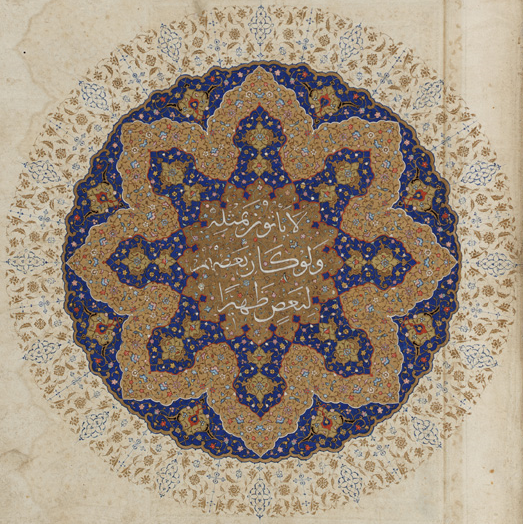This is an installment of the Religious Fundamentalism and Sexuality Project. You can read the full list of questions here and the posting plan here. The first six participants whose stories I’ll be posting are Melissa and Haley, Lina and V, Latebloomer and Katy-Anne.
Romantic Relationships
1. What were you taught to expect in a romantic relationship and/or marriage? How have you found reality to match or differ from your expectations?
Melissa and Haley
Melissa:
My dad would often point out behaviours of mine “that would infuriate my husband someday” and talked a lot about how men thought and what they expected out of a wife. I did my best to remember and learn the proper behaviours. After I got married I did my best to do what my dad and my reading had told me that my husband would want, but I found that my husband was very different from my dad, and really didn’t seem to fit any of the gender stereotyping I had been taught about men.
My mom always talked about how pleased my husband was going to be that I already knew how to be a good wife, that I was going to be spared so much trial and conflict in my marriage because of my upbringing. She talked about how my someday husband and I would be completely perfect for each other and marriage was a wonderful amazing thing. After I got married I found that much of my training was actually detrimental to my relationship with my husband and others in my life. It caused me to be judgmental and think that I knew all the answers. I made a lot of assumptions about my own marriage and other people’s relationships. And marriage was a lot of work! She was right about one thing though, my spouse and I really did end up being perfect for each other. I don’t think that had much to do with my upbringing and courtship though.
Haley:
I expected marriage to solve my gender identity struggle. It didn’t. As a bisexual I was plenty attracted to my spouse, but I really struggled with my body during sexual expression. I didn’t feel male, but I believed the teaching of the Church that I was male, so what now? Sexuality was an emotional minefield for me. I had married after a courtship. She is the only person I have ever kissed or been intimate with.
Lina and V
Lina:
Honestly, I’ve found everything that I was taught to expect: companionship, stability, love, respect, complementary gifts, sexual satisfaction. The only “problem” is that I found it with a girl. I wasn’t raised with an overtly patriarchal mentality (though my dad is a strong personality and definitely the decision maker of the house, he always consulted my stepmom and she had her own arenas of being in charge).
V:
I was taught to expect that I would need to be a good support for my husband because he would want to venture out to do things and be scared of failure. I was also taught, though I don’t think it was explicit, that in my marriage men both want and require ample amounts of sex, or they may turn to porn.
Reality is so much better. I love my wife. I love that we support each other, that we help each other, that our relationship is equal. And to hell with a lack of sex leading to one needing to supplement with porn; we enjoy looking at artistic lesbian porn together.
Latebloomer:
I heard many times that romantic feelings were not important in selecting a spouse because those feelings fade quickly; additionally, compatibility wasn’t important in selecting a spouse because marriage wasn’t supposed to be about self-gratification. According to Reb Bradley, the purpose of marriage was sanctification (becoming more holy). Marrying someone really different from you would promote faster personal growth and a closer relationship with God.
I was also taught that, once married, a wife had to center her life on her husband’s physical, emotional, and sexual needs to the neglect of her own wishes and needs. A husband, on the other hand, had to shoulder the responsibility of making all the important decisions for his family. I heard over and over that the biggest challenge in marriage was a wife trying to take control and/or a husband avoiding responsibility.
Reality is beautifully different from my fundamentalist expectations. I now understand how much diversity there is in the world, and there is not a one-size-fits-all approach to a happy marriage. Maybe the fundamentalist formula works for some people, but it would never work for my husband and me! My husband and I are happy to work as a team, make decisions together, and compromise when we disagree. We see each other as equals, respect each other, and respect ourselves. And it goes without saying that our romantic attraction and compatibility have made our marriage much stronger and more satisfying. Marriage is far better than I imagined it to be while I was still a fundamentalist.
Katy-Anne:
Reality is so much different to what the fundamentalists taught about relationships and marriage. I was taught that I was to obey my husband with a good attitude even if his idea was bad or wrong. I was told that if I did this, that God would turn my husband’s bad decision into a good one. If my husband made a decision, and it ended up being wrong and having serious negative consequences, the church would blame me saying that I obviously had a rebellious spirit even if I when I had obeyed. I have since learned that marriage is not a relationship in which the man is the head honcho because he has a penis and a woman is a subordinate, but rather, marriage is supposed to bring about oneness. If two people are one, it means they need to work together to come up with a mutually agreeable decision rather than someone pulling rank.
Fundamentalists like to make out that marriage is amazing and that the only way it’s not is if a woman is not submissive. That was a huge lie. My husband and I have had many marriage issues and we have learned that marriage isn’t always amazing bliss, that sometimes it’s hard, rough work to stay together. We work hard at staying together, according to fundamentalists it shouldn’t be that hard.















